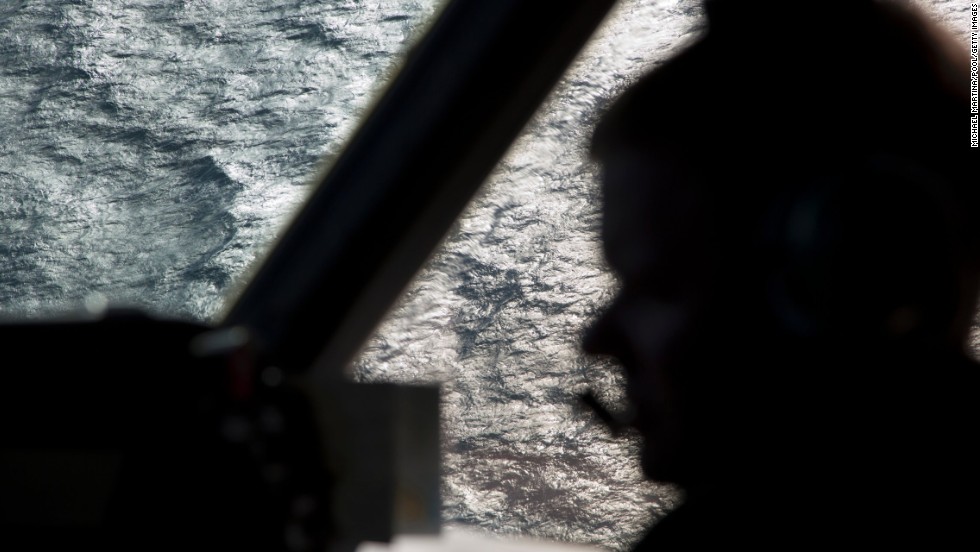saint-Denis, Reunion Island (CNN)Investigators and volunteers
are scouring the shoreline of Reunion in the western Indian Ocean for
more debris that could be linked to missing Malaysia Airlines Flight
370.

Objects that wash ashore on the island are being scrutinized.
Farther
out across the ocean, authorities on other islands -- Mauritius and the
Seychelles -- say they are on the lookout for items bobbing in the
waves that might be from the lost jetliner.
At
the root of all the hunting is a wing component of a Boeing 777 that
was found last week by beach cleaners on Reunion, a French overseas
department. Officials say they believe it's most likely from Flight 370,
the only 777 plane known to have gone missing over water.
The
wing part, known as a flaperon, is at a French lab, awaiting expert
verification that's due to begin Wednesday. The remnants of a suitcase
that were found on Reunion the day after the flaperon have been sent to
another lab for analysis.
Investigators seek 'a direct, physical link'
But
other than those two items, nothing else found on Reunion is getting
serious consideration from investigators as a possible link to MH370.
Since
the passenger jet went missing nearly 17 months ago with 239 people
aboard, there have been frequent false alarms amid the far-flung efforts
to locate it. Objects initially flagged as possible plane debris turned
out to be plain old flotsam and jetsam.
Following
that pattern, a metal item found Sunday on Reunion -- described by
authorities as an "object of interest" -- drew a lot of attention until
officials dismissed it as part of a household ladder.
Relatives of those on board have said they want 100% proof that the flaperon is from Flight 370.
"The
preference would be to get a direct, physical link between this
flaperon and MH370" in order to give "absolute certainty to the
families," said Martin Dolan, the head of the Australian agency that's
coordinating the underwater search for the aircraft's remains.
"If
we can't do that, then obviously, we'll have to find a way of
eliminating all other possibilities," Dolan, the chief commissioner of
the Australian Transport Safety Bureau, told CNN's "New Day" on Monday.
Lab analyzed Air France wreckage
It's
unclear how long the analysis will take at the lab in France, which
previously examined wreckage from Air France Flight 447, a passenger jet
that went down in the Atlantic Ocean en route from Rio de Janeiro to
Paris in 2009.

Remembering the passengers of MH370 12 photos
If the flaperon is confirmed to be from MH370, relatives say it still won't bring them the closure
that the recovery of their loved ones' remains would provide. It's also
unlikely to solve the mystery of why the plane flew wildly off course
and dropped off radar.
Australian
officials, meanwhile, say the wing component won't change the focus of
the underwater search they're overseeing on the other side of the Indian
Ocean from Reunion.
Part of the plane showing up on the French island would fit with the ocean current models they have been using, they say.
"We
haven't seen anything as a result of this find -- even if it were
confirmed absolutely to be from MH370 -- that would lead us to change
the search area," Dolan said.
Australia: No plans to widen underwater search
While
the flaperon has set off a flurry of searching on Reunion and beyond,
it appears unlikely to prolong or widen the Australian-led underwater
search.
Australian
authorities expanded the search zone earlier this year from 60,000
square kilometers to 120,000 square kilometers, an area bigger than the
U.S. state of Pennsylvania. Covering all of it is expected to take the
search teams well into next year.
But Australia said in June
that "in the absence of credible new information that leads to the
identification of a specific location of the aircraft," it won't be
expanded any further.
Australian Deputy Prime Minister Warren Truss reiterated that position in an interview with the Wall Street Journal on Monday.
"The
experts are telling us that there is a 97% possibility that it is in
that area, and if you move into a wider area there is just too much to
be covered for a small chance of finding the aircraft," he said.


Comments
Post a Comment